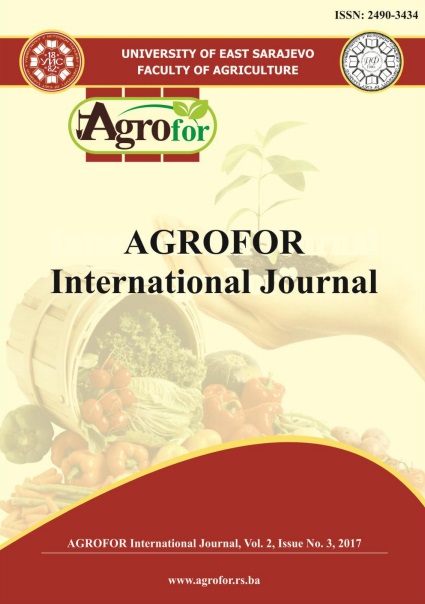STATE AND PROSPECTS OF SUNFLOWER PRODUCTION IN UKRAINE
DOI:
https://doi.org/10.7251/AGRENG1703116MAbstract
Sunflower (Helianthus annuus L.) is among the three most significant oilseed
plants in the world (along with, soybean and rapeseed) and one of the two most
produced oil crops in the European Union, together with rapeseed. Over the past
decade, Ukraine has maintained its position as leading producer and exporter of
sunflower seeds and ranks first for sunflower oil consumption globally. A recent
United States Department of Agriculture report in 2017 suggest that, Ukraine
presently (2015−2016) ranks first in sunflower production globally with a 29.3 %
share of total world sunflower output of 40.57 million metric tons. Respectively,
Russia and the European Union are currently ranked second and third, with a share
of 22.6 % and 18.9 %, followed by Argentina and China that produced 6.7 % each.
The main goal in sunflower breeding is to create hybrids with high genetic
potential for seed yield above 5 t/ha, but environmental factors seems to limit
current sunflower yields to the production range of 1.5–3.0 t/ha. In this study,
however, we report new sunflower varieties and hybrids in Ukraine that yield even
slightly above 3 t/ha. Thus, a unique sunflower production technology for the
forest-steppe of Ukraine for instance now provides sunflower seed yields of 2.9-3.5
t/ha. This became possible after the introduction of new high-yielding varieties and
hybrids, and the improvement of sunflower cultivation technologies for specific
natural and climatic zones. Hence, further increases in global sunflower seeds
output mainly from Ukraine are expected without expansions in limited agricultural
lands.

